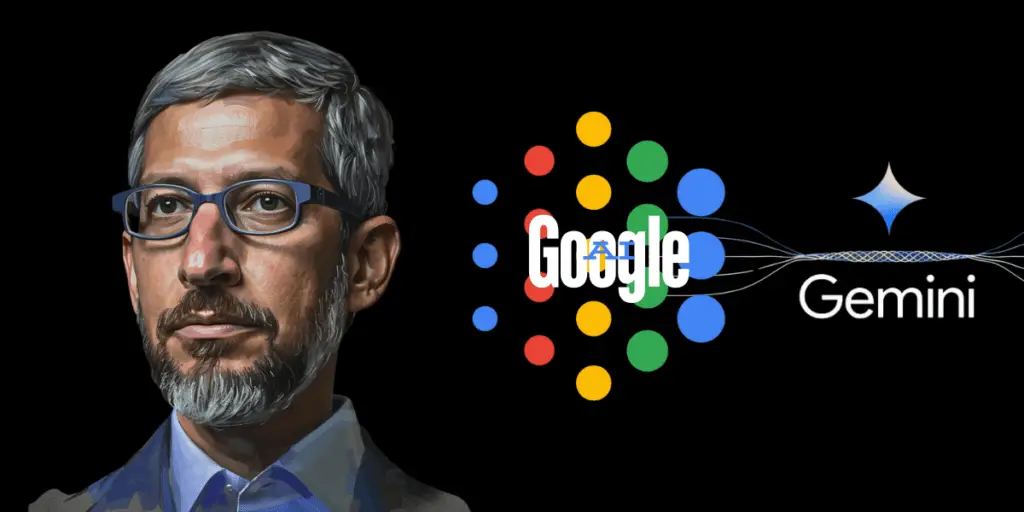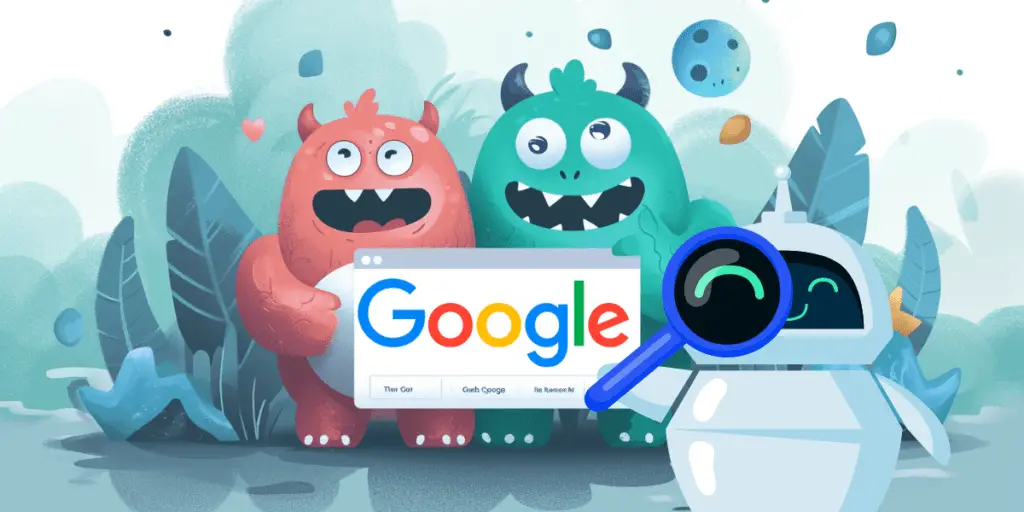Google has recently introduced a new feature in its search engine called Google AI Overviews powered by its advanced Gemini model.
This innovation aims to enhance the user experience by providing AI-generated summaries at the top of search results for queries that can be answered concisely.
Instead of clicking through multiple web links, users can get the information they need directly from these summaries.
As this feature is available to all users in the United States, it brings about some significant changes and concerns.
Google AI Overviews
AI Overviews are a new feature in Google Search that is designed to provide quick, concise answers to user queries by generating summaries from various web sources.
When you enter a search query that triggers an AI Overview, you will see an AI-generated summary at the top of the search results page.
These summaries give you the information you need without clicking on individual web links or exploring the original sources.
The initial release of AI Overviews was part of Google’s Search Generative Experience, available only to users who opted in.
Following the recent announcement at Google’s I/O developer conference, AI Overviews are now being rolled out to a broader audience.
This means that all users in the US will start seeing AI-generated summaries for specific queries as part of their standard search experience.
The feature is designed to be particularly useful for complex queries that require synthesizing information from multiple sources.

According to Google spokesperson Mallory De Leon, AI Overviews are intended to be especially helpful when users want to quickly understand a topic from various sources.
During initial tests, it was noted that AI Overviews could appear for both simple and complex queries, sometimes seemingly at random.
AI Overviews leverage Google’s Gemini model, which is customized to work seamlessly with other Google Search system components, such as the Knowledge Graph.
This integration allows the AI to pull from a vast database of facts and information to create accurate and informative summaries.
It is essential to note that while the summaries aim to be comprehensive, they only sometimes replace the depth and detail available in the original sources.
Can You Turn Off AI Overviews?
One of the most frequently asked questions about Google’s new AI Overviews is whether users can opt out of this feature and revert to seeing traditional web links.
AI Overviews are now integrated into the default search results, and there is no direct way to disable them for your Google account.
You can use a couple of methods to navigate around them and focus on web links instead.
After conducting a search query, you can manually switch to a view that emphasizes traditional web links.
- Perform your search as usual.
- You might see an AI Overview at the top of the results page.
- Click on the “More” tab alongside other filter options like Images, Videos, and Shopping.
- Select the “Web” option from the dropdown menu.
This will refresh the results page to show only web links, bypassing the AI Overview.
For those who prefer an automated approach, developers have created browser extensions that can force Google Search to display web-only results, effectively bypassing AI Overviews.
These extensions are available for popular browsers like Chrome, Vivaldi, and Firefox and are more likely to come for other browsers.
Install the browser extension designed to disable AI Overviews from the browser’s extension store.
Follow the extension’s setup instructions, if any.
Once installed and activated, the extension will automatically modify the search results to prioritize web links over AI Overviews.
While these methods don’t fully disable AI Overviews within Google Search, they offer practical solutions for users who prefer the traditional web link format.
Additional tools and options may become available as the feature evolves, allowing users more flexibility in interacting with search results.
When Will AI Overviews Appear?
AI Overviews in Google Search are designed to appear for queries where generative AI can provide beneficial summaries.
According to Google spokesperson Mallory De Leon, AI Overviews are triggered when the search system determines that a generative AI summary would be helpful for quickly understanding information from various sources.
AI Overviews will appear for complex queries, where synthesizing information from multiple sources can save users time and effort.
During initial tests, AI Overviews appeared for more straightforward queries, suggesting that the criteria for triggering these summaries might be broader than initially expected.
Examples of queries that might trigger AI Overviews include:
In-depth questions that require pulling together information from various articles and sources.
Comparative questions that benefit from summarizing different viewpoints or pieces of data.
Topics that are frequently searched and have a wealth of information available online.Randomness of Appearances
Users noticed that AI Overviews can sometimes appear unpredictably during the initial rollout. While they are intended for more complex questions, they have also appeared for straightforward queries.
This suggests that the system is still learning and adjusting to better determine when an AI summary will be most beneficial.

The AI Overviews are powered by Google’s Gemini model, enhanced with elements from Google’s Search system, including the Knowledge Graph.
The Knowledge Graph is a vast database containing billions of facts, which helps the AI generate accurate and informative summaries.
When an AI Overview is generated, it pulls information from various web sources to provide a comprehensive answer to the query.
Not all queries will result in an AI Overview, as the system selectively determines when this feature will be most helpful based on the complexity and nature of the question.
Concerns and Potential Issues
The introduction of AI Overviews in Google Search has sparked several concerns and potential issues, ranging from the accuracy of the information provided to the impact on publishers and user trust.
One primary concern is the possibility of AI hallucinations—instances where the AI generates incorrect or misleading information.
While Google’s Gemini model is designed to pull from verified sources and the Knowledge Graph, no system is foolproof.
Errors can still slip through, especially in nuanced or less straightforward queries. Unlike the Gemini chatbot, which includes a disclaimer about potential inaccuracies.
AI Overviews often lack such warnings, which might lead users to take the AI-generated summaries at face value without questioning their accuracy.
The absence of clear disclaimers in AI Overviews raises questions about the trustworthiness of the information.
Users might only sometimes be aware that the summaries are AI-generated and may assume they are as reliable as traditional search results.
This could lead to a false sense of security, where users might not need to verify the information through the original sources.
A health-related query might show an AI Overview stating, “Exercise can improve mental health,” without highlighting the nuances or the specific studies backing this claim, potentially oversimplifying complex topics.
AI Overviews also pose a significant challenge for publishers. Traditionally, search results drive traffic to websites where users can read articles, view ads, and generate revenue for content creators.
With AI Overviews summarizing information at the top of the search results, users are less incentivized to click through to the original sources.
This shift could impact the financial viability of many online publications, particularly those relying heavily on web traffic for ad revenue.
Despite Google’s efforts to ensure the quality and accuracy of AI Overviews, users are encouraged to double-check the information provided.
This involves clicking the original web links and verifying the details against the sources. However, in practice, many users seek quick answers.
They may not take the extra step to confirm the information, potentially spreading inaccuracies if the AI Overview contains errors.
For many users, primarily those unfamiliar with AI-generated content, this feature represents a significant shift in how they interact with search results.
A single, concise summary replaces the traditional method of skimming through various links and sources.
While this saves time, it limits the depth of understanding and exposure to diverse perspectives from reading multiple sources.
The broader implications become more pronounced as AI Overviews expand beyond the US, potentially reaching billions of users worldwide.
This feature will expose many people to AI-generated content, possibly for the first time, influencing how information is consumed and trusted globally.
It remains to be seen how this will affect the overall landscape of information dissemination and the public’s perception of AI-generated content.
Future of AI Overviews
As Google’s AI Overviews continue to roll out, their future development and impact are areas of significant interest and speculation.
Google’s head of Search, Liz Reid, has indicated that AI Overviews are expected to expand to countries outside the United States by the end of 2024. This global rollout means over a billion people will soon encounter this feature.
As AI Overviews become a standard part of the search experience for users around the globe, how people access and interact with information online could undergo a profound shift.
As the feature evolves, we expect Google to refine and enhance the AI models powering AI Overviews.
This includes improving the accuracy of summaries, reducing instances of AI hallucinations, and ensuring that the information presented is reliable and easily verifiable.
Continuous updates and feedback loops will likely play a critical role in fine-tuning these aspects, aiming to deliver high-quality, trustworthy content to users.
AI Overviews might also see deeper integration with other Google services and products.
For example, incorporating real-time data from Google News, Google Scholar, or even user-generated content from platforms like YouTube could provide more affluent, diverse summaries.
Such integrations could make AI Overviews more comprehensive and contextually relevant, enhancing their utility for various queries.
Given the concerns about AI-generated content’s accuracy and impact on publishers, Google may implement additional measures to build trust and ensure transparency.
This could involve clearer disclaimers about the AI-generated nature of summaries, more visible links to original sources, and possibly even user feedback mechanisms to report inaccuracies or biases in the AI Overviews.

The widespread adoption of AI Overviews can change how users consume information. With quick, concise answers readily available, users might spend less time clicking through multiple sources.
While this offers convenience, it also poses the risk of reducing exposure to diverse viewpoints and in-depth analysis.
Google must balance providing quick answers with encouraging more profound exploration of topics by highlighting different perspectives within the AI Overviews.
As AI Overviews become more prevalent, ethical and regulatory considerations will emerge. It will be crucial to ensure that the technology respects user privacy, avoids bias, and does not inadvertently spread misinformation.
Regulatory bodies might develop new guidelines and standards for AI-generated content. Google must navigate these evolving frameworks to maintain compliance and public trust.
Educating users about AI Overviews and how to use them effectively will be essential to their successful integration.
This includes guiding users on verifying information, understanding the limitations of AI-generated summaries, and recognizing the importance of consulting original sources for comprehensive insights.
Final Thoughts
These quick and concise summaries are powered by advanced AI models like Gemini. While this feature promises greater efficiency and ease of access to information, it also raises significant concerns about accuracy, trust, and the impact on web publishers.
As AI Overviews expand beyond the United States and become a standard feature for users worldwide, how people consume information online will likely change.
Google’s challenge will be to balance the convenience of AI-generated summaries with the need for reliable, in-depth information and diverse perspectives. Addressing potential issues such as AI hallucinations and ensuring transparency will be crucial in building user trust.
Broader implications for the digital ecosystem, including the financial viability of content creators and ethical considerations around AI-generated content, must be carefully managed.
Continuous refinement of the technology, deeper integration with other Google services, and user education will play critical roles in navigating these challenges.
While AI Overviews offer exciting possibilities for enhancing the search experience, their successful implementation will depend on Google’s ability to address these multifaceted concerns.
By doing so, AI Overviews can become a valuable tool that complements traditional search methods, enriching how users access and engage with information online.


